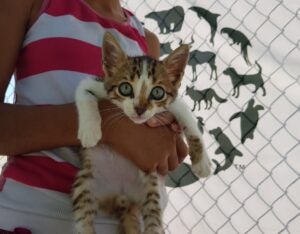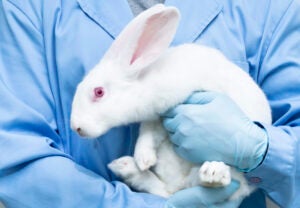
LONDON—England today becomes the third UK nation, after Wales and Scotland, to bring into force a ban on the use of rodent glue traps, which are described by leading animal protection organisation Humane Society International/UK as “inhumane, indiscriminate and indefensible”.
Entering into force today, the Glue Traps (Offences) Act prohibits use of glue traps by the public. The ban has been welcomed by HSI/UK, which led the Unstuck campaign to end the public’s use of glue traps. However, as glue traps remain on sale to the public throughout the UK despite their use by the public now being illegal, the charity is urging caution against accidental law breaking.
The rudimentary traps, widely available for as little as 99p from hardware and corner shops, immobilise small mammals in strong adhesive in which the animals can suffocate, rip off skin and fur and break their limbs in desperate efforts to escape. The traps also pose a serious risk to other species, including hedgehogs, cats and wild birds, with numerous reports every year of animals being caught and suffering often fatal injuries.
Claire Bass, senior campaigns and public affairs director for Humane Society International/UK, said: “We are delighted that it is no longer legal for members of the public to use these horrendously cruel traps which cause immense suffering to animals, who have been known to chew off their own limbs in a desperate attempt to escape. But confusingly, although it is now an offence for the public to use glue traps, it is not illegal to sell or buy them which means consumers could unwittingly commit an offence. We will be raising awareness of the new law so that people don’t unintentionally break it, and we’re also calling on retailers to voluntarily stop stocking these traps. We are urging the UK, Welsh and Scottish governments to unite on a glue traps sales ban.”
HSI/UK’s research on the welfare problems of glue traps is referenced in glue trap ban legislation passed in all three nations. It shows that when confronted with a dying animal on a trap more than 50% of the public say they either would not know what to do with them or would take an action that risks committing an offence under the Animal Welfare Act (2006) for causing unnecessary suffering, including 9% who said they would drown the animal.
As well as being inhumane, killing animals like mice and rats typically does not offer a permanent solution to the problems their presence might cause. Treating the symptom by eliminating a single rat or mouse—or even an entire colony—is ultimately futile unless the conditions that encouraged them to take up residence in the first place are addressed. Over time, others will simply move into the vacated territory. HSI/UK advocates humane methods of deterrence such as removing food sources and blocking up access holes which are ultimately more effective than the “quick fix” of killing. Read more here.
The ban explained:
- The Glue Trap (Offences) Act 2022 requires rodent control professionals in England to apply for and hold licenses for glue trap use only in exceptional circumstances and where all alternative methods are impossible or have failed.
- Anyone applying for a licence needs to complete required training and meet specific requirements, including the need to carry out regular inspections of the trap and prevent the capture of non-target animals.
- Anyone caught setting a glue trap to catch a rodent, or in a way that risks catching a rodent (without a licence), or who permits a trap to be set to catch a rodent, could face up to 51 weeks in prison, or receive a fine, or both.
- Anyone who finds a glue trap that risks catching a rodent and fails to act to stop the risk could be fined, unless they have a reasonable excuse for why they failed to act.
- The Welsh Government introduced a full ban on use of rodent glue traps in 2023.
- Earlier this year the Scottish Government passed a ban—with an allowance for Ministers to approve glue trap use in exceptional circumstances where all other methods have failed—and asked to be allowed an exemption to the Internal Markets Act to allow Scotland to unilaterally ban the sale of glue traps, but the UK Government has so far denied this.
ENDS
Media contact: Sally Ivens, HSI/UK, sivens@hsi.org ; 07590 559299









